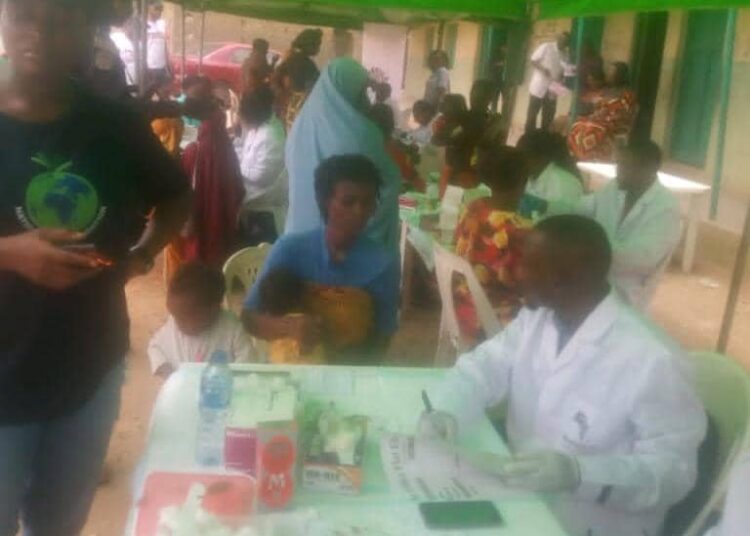As part of activities to mark the World Malaria Day, PanAfricare, an international non-profit organisation, has carried out free malaria testing, treatment and distribution of 500 mosquito nets to residents of Mpape community in Bwari Area Council of the Federal Capital Territory (FCT) Abuja, targeting nursing mothers, pregnant women and children under five years.
World Malaria Day is observed annually on April 25, to bring global attention to the efforts being made to eradicate malaria, and encourage action to reduce suffering and death from the disease.
The theme of the year’s celebration was “Accelerating the Fight Against Malaria for a More Equitable World”.
Speaking during the outreach in Mpape community, the national coordinator, National Malaria Elimination Programme (NMEP), Dr. Godwin Ntadan, appreciated the PanAfricare and other partners that have contributed to the success of the programme.
He urged the beneficiaries to take the event as a privilege, noting that malaria has been causing a great havoc in the country.
Represented by the head, advocacy communication and social mobilisation, NMEP, Raphael Oyinbo, the national coordinator noted that malaria causes school absenteeism and low productivity among the adults, thus the need for the outreach.
“It is a concern for us, that is why I say it is a privilege to have this event. Statistics have shown that children may come down three to four times in a year and each time they come down, you may not spend less than N6,000. Make sure you get tested and once you are positive, you will be given free treatment. Also make sure that you complete the treatment,” he stated.
For his part, the Bwari Area Council chairman, John Gabaya, thanked the partners for the gesture, especially for choosing Bwari Area Council.
Represented by the supervisory councillor for health and human services in the Area Council, Sa-Bwaja Moris Atnadu, the chairman specially thanked PanAfricare for their continuous support for malaria awareness and control in the area council.
“I want to sincerely say a big thank you for the gesture, especially for chosing Bwari Area Council. We really appreciate it and as a council, we will continue to give our support in order for this programme to be successful.
“For the participants also, we want to say that we will continue to encourage them in a time like this so that they will continue to come out in good number so that they will get treated and get whatsoever that is meant for them.”
PanAfricare country director, Dr Patrick Adah, said the community activity that the NGO has done was one of the activities that the NMEP has outlined to celebrate the World Malaria Day.
He said the World Malaria Day is actually a day set aside to sensitive the public and to let them know about the various tools that are available for malaria control, and one of it is the use of insecticide treated net; letting people know that when they sleep inside the net everytime, they will have the chances of preventing malaria.
It is also an opportunity to let the public know that when they have fever, they need to be tested to confirm that they have malaria before they can go for treatment, as well as letting them know the type of treatment and the drugs that are used for malaria treatment, he added.
“Over the years, we have been sensitising people, people are becoming more aware and the use of net has also increased in the country, unlike what it was before, more people are getting the knowledge about malaria control, so we have contributed towards sharing the knowledge about malaria control. If you conduct knowledge survey now, you will find out that more people are aware of the tools being used for malaria control than before, so it has led to the increase in Knowledge and you know that knowledge is power.
“When you have knowledge of something, you are no longer ignorant, when you have malaria, you know what to do. When you have fever, you know that you have to be tested. Before now, there were a lot of people who were taking self medication, they don’t want to go for test before they treat malatia but I think that number has also reduced, the number of people who do self medication, who just treat because they have fever and go and treat malaria, that number is also decreasing, so people now know that when they have fever, they need to ask for test, when they go to the clinic, they don’t just ask for drugs, they get tested first before given drugs,” Dr Adah explained.
One of the beneficiaries, Mrs Aisha Adams, thanked PanAfricare for the gesture, saying that the mosquito nets will help protect her children from frequent illness due to mosquito bites.





